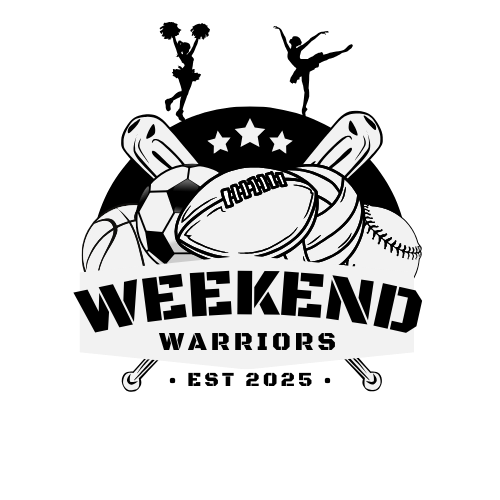Healing Centered Coaching Strategies for Empowering Youth Athletes
Let’s be honest—coaching youth athletes is about way more than just wins and trophies. Young athletes carry more than cleats and water bottles to practice. Many of them bring the weight of past experiences, personal challenges, and emotional stress. That’s where healing centered coaching comes into play.
But what exactly does this mean? And how can volunteer coaches, mentors, or even parents use a healing-centered approach to better support young athletes?
Let’s dive into what healing centered coaching is all about and how it can change the game, both on and off the field.
What Is Healing Centered Coaching?
Unlike traditional coaching models that focus purely on performance, healing centered coaching addresses the whole person. It’s a mindset that recognizes the emotional, mental, and even spiritual health of youth athletes—not just their stats or skills.
Think of it this way: if performance is the fruit, then mental and emotional health is the soil. Healing centered coaching doesn’t just water the plant—it nurtures the ground it’s rooted in.
So, What’s the Difference?
- Traditional coaching often emphasizes discipline, strategy, and performance.
- Trauma-informed coaching recognizes that some athletes have experienced difficult pasts and adapts to be sensitive to their needs.
- Healing centered coaching takes it a step further by focusing on strengths, empowerment, and hope—not just surviving but thriving.
This approach helps youth athletes develop resilience, confidence, and a positive sense of identity—not just better free throws or faster sprints.
Why Healing Centered Coaching Matters Now More Than Ever
Today’s youth are navigating a lot—social pressures, academic stress, family challenges, and even global issues like pandemics and climate change. Combine this with the pressures of sports performance, and you’ve got a recipe for burn-out or emotional overload.
That’s why youth mental health is no longer optional; it’s essential. A healing-centered coach doesn’t see an underperforming athlete—they see a whole person who might need understanding, support, or just someone who believes in them.
A Safe Environment = A Stronger Athlete
When young athletes feel safe, seen, and valued, they’re more likely to:
- Take healthy risks in learning new skills
- Open up about what’s really going on
- Develop trust with teammates and coaches
- Stick with sports longer and avoid quitting due to stress or burnout
How Coaches Can Practice Healing Centered Coaching
You don’t need a psychology degree to be a healing-centered coach. You just need heart—and a few practical strategies. Here’s how you can bring this approach to life:
1. Build Strong, Trusting Relationships
Before yelling out drills, take the time to get to know your athletes. A simple “How was your day?” or “Anything on your mind?” can go a long way.
Remember, connection comes before correction. Build a bond first. Correct technique or redirect behavior later.
2. Focus on Strengths, Not Just Problems
Instead of asking, “What’s wrong with this athlete?” ask “What strengths do they bring to the team?”
Every young person has a spark. Your job? Help them see it. Maybe they’re not the fastest, but they have amazing leadership skills. Maybe they struggle with consistency, but they’re incredibly supportive of teammates.
3. Create a Culture of Belonging
Make your team feel more like a family than a factory. Encourage athletes to lift each other up, not just compete for starting spots.
You can do this by:
- Creating team rituals (shared cheers, high-fives, affirmations)
- Encouraging peer mentoring
- Celebrating effort, not just outcomes
4. Let the Athlete Be the Author of Their Story
Healing centered coaching gives athletes agency. Let them set personal goals, reflect on their progress, and voice their opinions about team dynamics. This helps them feel in control—not just coached like robots or judged by their last performance.
Also, give space for emotions. If a player is upset or frustrated, let them talk. You don’t need to fix everything—just listen.
5. Model the Behavior You Want to See
If we want athletes to stay calm under pressure, we need to manage our own stress first. If we want them to be respectful, we need to talk to them (and referees) with patience and care.
Kids don’t always do what we say—but they almost always notice what we do.
Healing Coaching = Lifelong Impact
One day, the final whistle will blow. The medals will collect dust. The stats will fade. But do you know what sticks?
How a young athlete felt when they were around you.
Did you help them feel seen? Safe? Strong? Those are the kinds of things they carry forever.
Healing centered coaching isn’t just a teaching method—it’s a movement. Imagine the ripple effect when young people grow up believing in themselves, feeling worthy, and knowing how to build healthy relationships. Talk about a win.
Final Thoughts
It’s time to shift from coaching just for performance to coaching with purpose. When we embrace healing centered strategies, we create environments where young athletes can truly grow—not just as players, but as people.
So, whether you’re a rookie coach, a seasoned sideline pro, or a committed sports parent, you have the power to change lives.
Ready to Take the Next Step?
Whether you’re coaching your first practice or cheering at your fifth game this weekend, we’ve got some powerful tools lined up for you.
For all first time or rookie coaches, grab your Voluntold Toolkit here.
For all you youth sports parents who are the TRUE weekend warriors, grab your Weekend Warriors Toolkit here.
If you’re interested in youth sports mental performance coaching with a certified mindset coach, check it out here.
For all you youth sports parents who are the TRUE weekend warriors, grab your Weekend Warriors Toolkit here.
If you’re interested in youth sports mental performance coaching with a certified mindset coach, check it out here.
Here’s to coaching for connection, not just competition. Let’s build kids up from the inside out.
